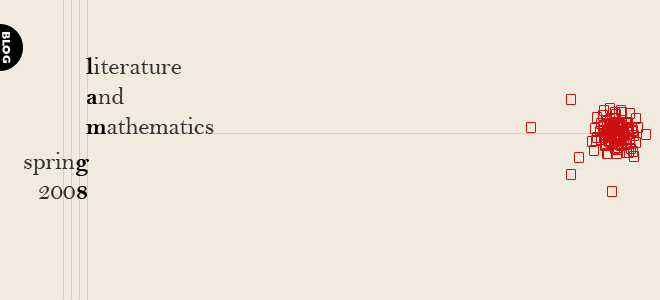One of the aspects of Vas that intrigued me the most was when the book started discussing the development of language, and how in today’s world Chaucer would seem illiterate. This sentence almost makes me look forward in horror for the development of the English language in our future. In a culture of cell phones and internet many words have already been creatively butchered so that one text message of 60 characters can contain a whole point of thought. Already words are fairly acceptable as long as you don’t stick them in an English paper. Words like probably are shortened to prolly and nowadays even grandma knows what you mean because she too is a crackberry addict.
I wouldn’t feel so upset about our language changing except that Vas goes on to talk about languages that have died completely, around 300 a year. I find this news shocking and sad. It would be one thing to adapt your language even in appalling ways such as using brb to convey an entire phrase meaning that you’ll be right back, but if your language disappeared completely it would be a crime to that culture. To be robbed of a language would all but kill most cultures anyway since the blood that gives life to the cultural body is composed of music, performances, literature which would all be in a language no one understands, and no one can translate. Great works of literature have fallen away unread by the world because they were never translated. Vas seems to foretell of a future where we will all speak the same language. Would this be all that bad?

6 comments:
I feel the same way about this. It's nice to laugh when we hear "Idk, my bff Jill" but it's also sad that our language is becoming manipulated to such an extent that words are losing their true meanings.
I think that i will also have to agree with you. i don't think that i can go a day without someone "lol"ing or "rofl"ing. i would just like to point out that all language wouldn't die. i was thinking of the Rosetta stone. it had three different languages on it ( Egyptian heiroglyphics, classical Greek, and some other language i can't think of) and was used to help Egyptologist translate heiroglyphics. this saved that ancient language. other ancient languages remain alive, like Latin. Latin is still taught and read even though it has been spoken in many hundreds of years. So there is really no fear of many of the modern languages dieing any time soon.
the facts about extinct languages shocked me too. it's crazy to think that a whole language and culture can just disappear like that. and it's a whole other thing to realize that this happens to 300 languages/cultures each year!! it doesn't seem possible to me.
One other thing you might want to consider is the relationship between a language and the associated slang. Most reputable publications (where people do most of their reading) refrain from incorporating slang phrases, especially those that are derived from informal chat technology.
I for one like change and am not worried about English transforming and being lost. However the global phenomena of L33T speech simplifies meaning along with phrases. My worry is that words with complex, nuanced meanings will be lost to anyone who doesn't spend their days reading a dictionary.
It's not so much that fact that language is changing that is "bad", per se, but the fact that our vocabularies are shrinking.
The Sapir-Whorf hypothesis, along with the research done by Neuro Linguistic Programming scientists, shows that our language affects our thinking to a great degree.
It's a scary thought that as a language degrades, so too do the minds of its speakers.
Post a Comment